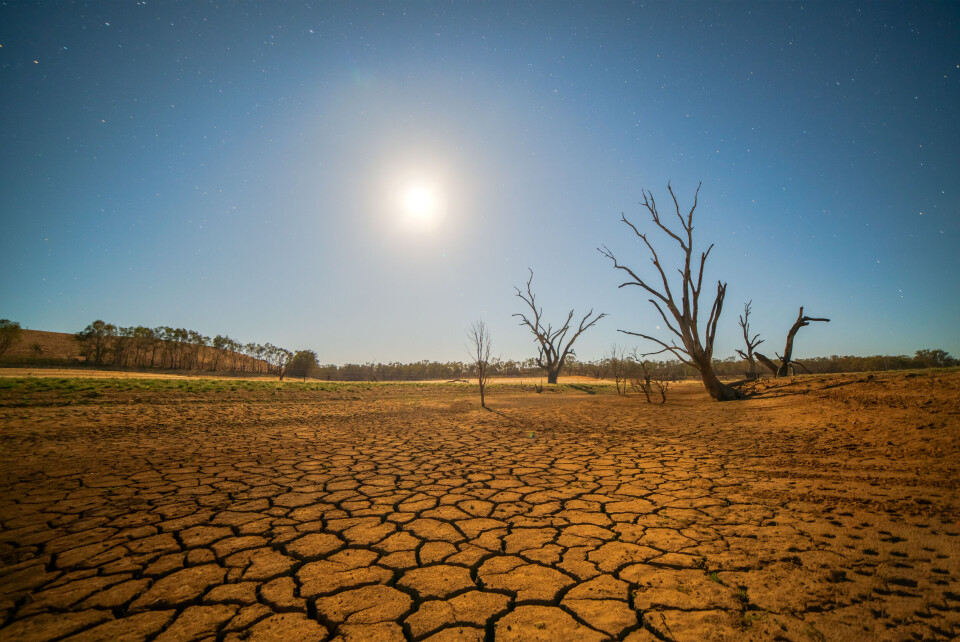-
Red flood alerts continue in south-west - and more heavy rain expected
Garonne river is particularly affected. French weekly weather forecast February 16 - 20
-
Why your car insurance in France is expected to increase this year
Premiums are forecast to rise by four to six percent in 2026
-
Two Britons killed in avalanche in French Alps were with an instructor
French skier also died in the disaster at Val d’Isère on Friday February 13
Warm weather, drought and fires: why it may feel like summer in France
Higher-than-normal temperatures and the impact of a record winter dry spell make it feel more like August than March

Higher-than-normal temperatures, droughts and even forest fires – features we normally associate with the height of the summer.
But France has experienced all three so far this year and we are only halfway through March.
It has sparked fears the summer months will only worsen the situation further.
There are already a number of French departments facing drought restrictions in a bid to conserve water supplies, which were not replenished amid the record dry period this winter.
Read also: Bring in water restrictions from now, French prefects told
Abnormally warm temperatures
Across the country, regions are already seeing temperatures usually reserved for August.
The south-west of France usually experiences temperatures of around 5°C - 15°C in March, but temperatures have been well above this, reaching 21°C yesterday (March 13).
Some outlets are even reporting that Biarritz, a popular tourist destination in the summer, will see temperatures of 26°C later this week.
As well as in warmer cities in the south, even traditionally chilly spring regions are seeing hikes on the thermometer - in Strasbourg yesterday, the temperature reached 22°C, over 10°C higher than the average highs for spring in the city.
FranceInfo published an infographic covering the average temperatures of a number of French regions over the last 50 years, showing the effects of climate change across the country.
Read also: French TV changes weather forecast to include climate change context
Nice and Bastia are over 4°C higher on average than in 1971, and the average temperature across France has risen by 1.7°C.
Last week even saw the presence of a Tornado in Creuse, the first in the region in over 25 years, although tornadoes are equally common across the entire year according to the head of Agate Météo Patrick Marlière.
France’s record dry winter
France not only saw a relatively mild winter temperature-wise, but also an exceptionally dry one in terms of rain. The country recorded the longest time with any rain - 32 consecutive days, according to Meteo France.
As of Tuesday (March 14), there are 11 departments already seeing drought restrictions in France, with one department (Pyrénés-Orientales) even seeing a code three ‘alerte renforcée’ warning over the lack of water.
This level means there are heavy restrictions on a number of activities such as washing your car or watering your garden, and on the use of water in public spaces like golf courses, with these activities even being banned in some areas.
Last week’s intense rainfall did little to help replenish water levels in France, and unless the weather changes drastically, restrictions are expected to last much longer and increase in both volume and severity, in an attempt to stop France from plunging into a water shortage.
Read more: Can I use water from well to water garden during droughts in France?
Read more: Drought: Building permits suspended in nine south of France communes
Forest fires already present
The drought is not only causing low water levels but also forest fires.
Departments in the south, especially Alpes-Maritimes, have already recorded a number of forest fires since early March this year, in some cases spreading across 30 hectares of land.
The lack of rainfall makes the wooded areas extremely dry, and high temperatures and strong winds mean it is much easier for fires to spark up.
"When there is a drought, the slightest point of ignition could start a fire that evolves quickly," said Grasse firefighter Jean-Christophe Demarte to BFMTV.
And there are no signs that 2023 will be easier after last year saw a number of departments deal with extraordinary fires, with the firefighter saying that 2023 is already ‘shaping up to be like 2022’ in terms of the strength of forest fires in France.
Read more: Forest fires in France: Cameras to be used more to prevent blazes
What does this mean for France?
It is not only everyday life that is changed by these abnormalities but also the production of some of France’s most famous exports.
Winemakers in France are already adapting to the impact of climate change on their vineyards and this year’s cheese may taste different due to the lingering effects of last year’s warm weather.
France is not alone in facing these issues, but in a country that prides itself so heavily on what it can grow, changes and damages to the environment could have a major impact on the future of France.
Related articles
Water management expert throws doubt on French minister’s drought plan
Why the month of March will be decisive for droughts in France
























